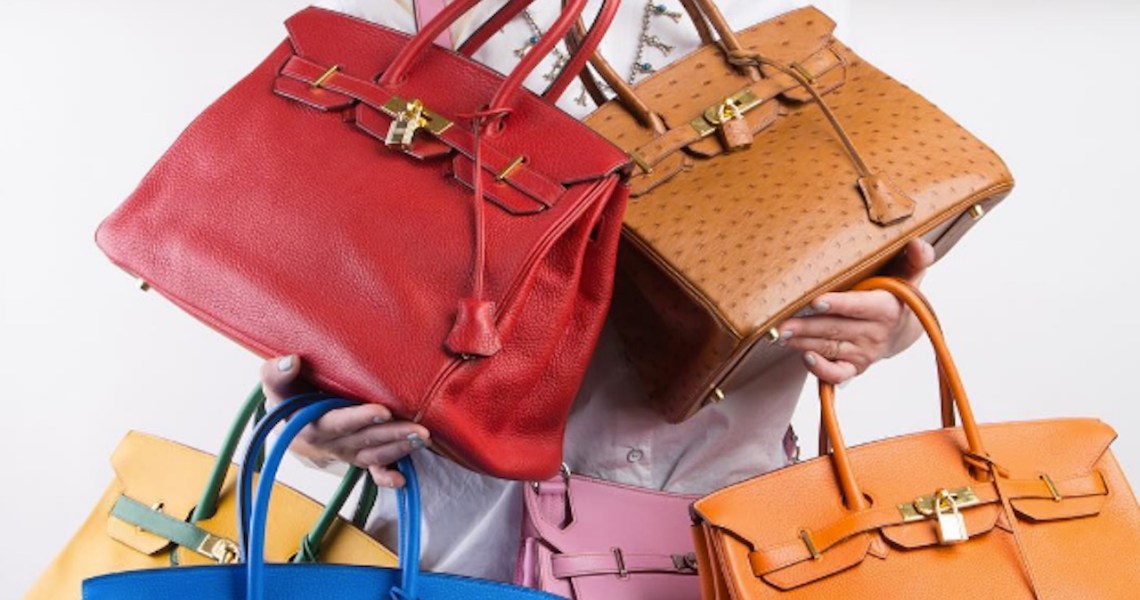The resale market has become an undeniably important force in fashion today, thanks in part to the prevalence of major online platforms where customers can buy and sell clothes. According to a report from Fung Global, the online consignment market is worth around $34 billion. With all the money being poured into the resale world by consumers today, how do brands feel about so many of their potential customers buying their clothes pre-owned?
Surprisingly, many brands are not as hostile to the resale market as one might think.
To start, it is helpful to understand why people are drawn to resale in the first place. One of the most obvious reasons is price. Buying a Gucci sweater from The RealReal instead of from Gucci is, naturally, the much cheaper option. This has led to a large number of customers who otherwise would not wear clothes from certain brands having access to them.
“There has definitely been a shift in how consumers think about luxury,” said Brian Lee, associate director at Gartner L2. “There has been a ‘democratization’ of luxury fashion, where it is no longer exclusive to people of a certain socio-economic class or group. Due to increasing accessibility and knowledge, primarily through digital channels like online e-commerce, resale and social media, more and more consumers are able to shop luxury products to varying degrees.”
Rather than seeing this as a downside, many luxury brands are open to the idea, and some have even collaborated with resellers for exclusive pieces and marketing campaigns, like when Stella McCartney teamed up with The RealReal.
Luxury brands are loathe to sell their products at a discount, yet at the same time, they want their products to be as visible as possible. The balance between exclusivity and accessibility is one that the luxury sector has grappled with for years. With resale, a helpful solution is presented. Customers can buy products from an expensive brand without having to pay the full price. In exchange, brands get more visibility and awareness without having to lower their prices. Those customers who buy things from resale can even go on to become primary market customers later.
“Resale sites, like The Real Real, have lowered the entry price to own luxury goods,” said Lauren Price, director of client strategy at Gartner L2. “This does make them more accessible, but also creates new luxury consumers who can scale up to buying brand new items as their spending power increases.”
Ad position: web_incontent_pos1
Without partnering with resellers officially, brands also make room for so-called gray markets — uncertified resellers with no guarantee that the product a customer receives will be the one they asked for. This has been an issue for the luxury watch category, in particular. In response, brands have worked directly with resellers like TrueFacet to ensure that their products being sold are real. In doing so, they ensure that customers always have a good experience with buying their products, whether they get them direct or from resellers.
“Young people tend to want fresh things, fresh experiences,” Tirath Kamdar, founder of TrueFacet, told Glossy last week. “They buy stuff and then swap it out. Now when you look at the watch and jewelry industry, [brands] are not meeting that demand. There’s a big gap there where resale steps in.”
Brands in the luxury space also look to resellers for guidance. They pay close attention to how their products perform in the resale market as an indicator of what designs are resonating and what has staying power. Josh Luber, the founder of resale site StockX, which sells sneakers, watches, handbags and streetwear, said that while brands like Nike have a “willful blindness” policy of ignoring the resale market, they are hyper-aware of it and the benefits it has for them.
“The theme of the primary and secondary market is convergence,” Luber said. “Every time you have a secondary market, it starts to work together with the primary market over time. Ten years ago, sports teams were trying to shut down ticketing websites, but now they work together all the time. It’s the same thing with fashion. Those markets are going to work together more and more.”
Working with resellers can also give brands insight into designing outside of their comfort zone. According to Eddy Lu, founder of sneaker resale site GOAT, luxury brands are particularly keen on observing what works in the sneaker market. As luxury brands try to court the streetwear customer, some brands have even begun selling directly through the resellers in order to court those customers and have access to the customer data the platforms provide. This is why Versace created a sneaker called the Chain Reaction over the summer and released it exclusively through GOAT.
Ad position: web_incontent_pos2
“The truth is, Versace and luxury brands don’t know who these [streetwear] customers are,” Lu said. “They’ve never focused on this section before. Gucci used to make the same three shoes every single year, with no change. They look to [resale] for guidance.”




